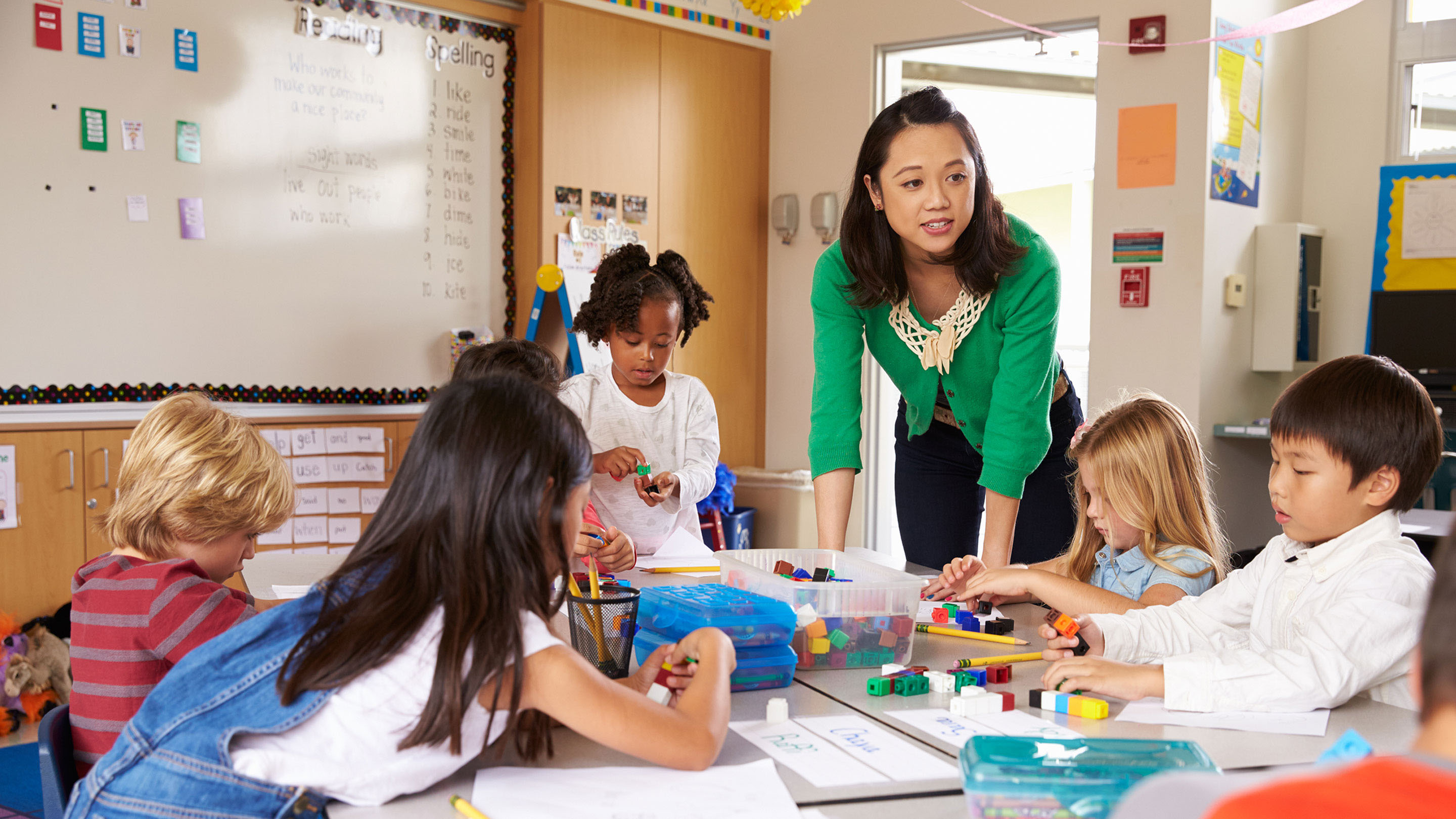Tailored Primary Science Tuition Singapore for Your Child’s Success
Tailored Primary Science Tuition Singapore for Your Child’s Success
Blog Article
Discover the Important Advantages of Understanding Key Science for Young Learners
The importance of main science education for young students expands far beyond mere expertise procurement; it serves as a fundamental pillar in developing important skills such as critical reasoning, analytical, and creativity. Engaging with clinical ideas through interactive and inquiry-based activities not only cultivates inquisitiveness however also lays the foundation for resilient, certain students.
Enhancing Vital Thinking Abilities
Fostering vital thinking abilities in young learners is crucial for their cognitive advancement and future academic success. Critical reasoning enables youngsters to examine information, examine evidence, and make educated decisions, which are crucial skills in today's information-rich culture. By engaging in clinical inquiry, young learners can boost these skills as they discover concepts via thinking, observation, and experimentation.
In key science education and learning, instructors can help with important reasoning by encouraging pupils to ask concerns, develop hypotheses, and conduct experiments. This hands-on method allows kids to exercise problem-solving and establish rational reasoning skills. When trainees investigate the residential or commercial properties of materials or the concepts of movement, they learn to examine their searchings for seriously and attract conclusions based on evidence.
In addition, discussions and joint jobs can advertise vital thinking by providing opportunities for students to verbalize their thoughts, challenge presumptions, and take into consideration diverse viewpoints. By developing an encouraging environment that values inquiry and representation, educators can nurture crucial thinking abilities that equip young learners to end up being independent thinkers and lifelong students. Eventually, improving these skills lays a durable structure for their future scholastic endeavors and personal development.
Cultivating Interest and Expedition

Key scientific research education and learning offers an organized atmosphere where young learners can discover various sensations with hands-on experiments and observations. By permitting them to interact with materials and involve in inquiry-based understanding, teachers create chances for kids to create theories, evaluate their concepts, and reason. Such experiences nurture a feeling of marvel and exhilaration regarding scientific research.

Building Self-confidence in Problem Addressing
Structure confidence in analytic is a critical component of key scientific research education that empowers young learners to come close to challenges with resilience and creative thinking - primary science tuition Singapore. They create vital skills in crucial reasoning and evaluation when kids are motivated to involve with scientific ideas via hands-on tasks and inquiry-based learning. This procedure not only boosts their understanding of scientific principles yet additionally promotes a feeling of ownership over their understanding
To construct confidence, educators ought to produce a helpful environment where mistakes are deemed chances for development instead of failings. This motivates students to take risks and discover different services to issues. By giving scaffolding and support, teachers can help pupils browse this link complicated tasks, gradually raising their freedom in analytic scenarios.
Moreover, collaborative understanding experiences, such as group projects or experiments, can even more improve pupils' self-confidence as they find out to verbalize their thoughts and pay attention to others' point of views. These interactions support social skills and enhance the idea that analytical is usually a cumulative undertaking. Inevitably, growing self-confidence in analytical prepares young students for future scholastic obstacles and furnishes them with the devices required for lifelong knowing.
Motivating Creativity and Innovation
In the world of primary scientific research education, urging imagination and innovation is essential for growing a vibrant understanding atmosphere. By fostering a culture where young students can check out concepts and experiment openly, instructors help students establish essential assuming abilities and a passion for discovery. Creativity in science motivates youngsters to ask concerns, create hypotheses, and participate in hands-on tasks that promote their creative imagination.
Integrating flexible projects and inquiry-based knowing right into the curriculum enables pupils to express their one-of-a-kind perspectives and options. When charged with solving a trouble related to their setting, trainees can brainstorm numerous methods, leading to inventive results that showcase their creativity. This not just grows their understanding of clinical ideas but also imparts a sense of ownership over their understanding process.
Furthermore, creative science education nurtures partnership amongst peers, as trainees usually share concepts and improve one another's understandings - primary science tuition Singapore. This collective spirit promotes not only innovation yet also crucial social skills. Therefore, by prioritizing imagination and technology in key click reference scientific research education and learning, we encourage young students to think seriously, embrace difficulties, and imagine opportunities, laying a strong structure for lifelong learning and expedition
Preparing for Future Discovering Difficulties
Young students' capacity to browse future discovering obstacles depends upon a strong structure in primary science education and learning. This foundational understanding gears up students with important believing abilities and an organized method to problem-solving, necessary for dealing with complex problems in an ever-evolving globe. Primary science fosters inquiry-based learning, motivating pupils to ask inquiries, explore theories, and participate in hands-on experiments.
As they develop these skills, students become experienced at evaluating data, identifying patterns, and attracting educated conclusions. Such proficiencies are important not just in scientific fields yet likewise in design, mathematics, and modern technology (STEM), where interdisciplinary understanding is significantly essential.
Moreover, key scientific research education grows a feeling of interest and durability in young students, allowing them to see difficulties as possibilities for growth. As they come across and conquer obstacles in their scientific explorations, they develop self-confidence in their capability to innovate and adjust.
Inevitably, a solid structure about his in primary scientific research not just prepares young students for scholastic pursuits but likewise furnishes them with the tools necessary for long-lasting discovering and adaptability in a rapidly transforming global landscape. By purchasing primary scientific research education and learning, we are purchasing the future possibility of our learners.
Final Thought
Recognizing key scientific research is essential for young learners, as it promotes important reasoning, inquisitiveness, and creative thinking. Engaging with scientific principles through hands-on experiments enhances analytical capacities and constructs strength. This foundational expertise not only furnishes students to examine information and identify patterns but also nurtures an inquiry-based way of thinking. Ultimately, the benefits of primary science education and learning prepare youngsters for future scholastic searches and infuse lifelong knowing behaviors important for thriving in an ever-evolving world.
The relevance of key scientific research education and learning for young students expands much beyond plain knowledge procurement; it serves as a basic pillar in creating crucial skills such as essential thinking, analytic, and creative thinking. By producing a supportive environment that values inquiry and reflection, educators can support important thinking abilities that empower young students to end up being independent thinkers and lifelong learners. Therefore, by prioritizing creative thinking and technology in main scientific research education, we encourage young students to believe seriously, welcome challenges, and visualize opportunities, laying a strong structure for lifelong learning and exploration.
Young students' capability to browse future discovering difficulties hinges on a strong structure in main scientific research education.Comprehending primary science is critical for young students, as it promotes essential reasoning, inquisitiveness, and creative thinking.
Report this page